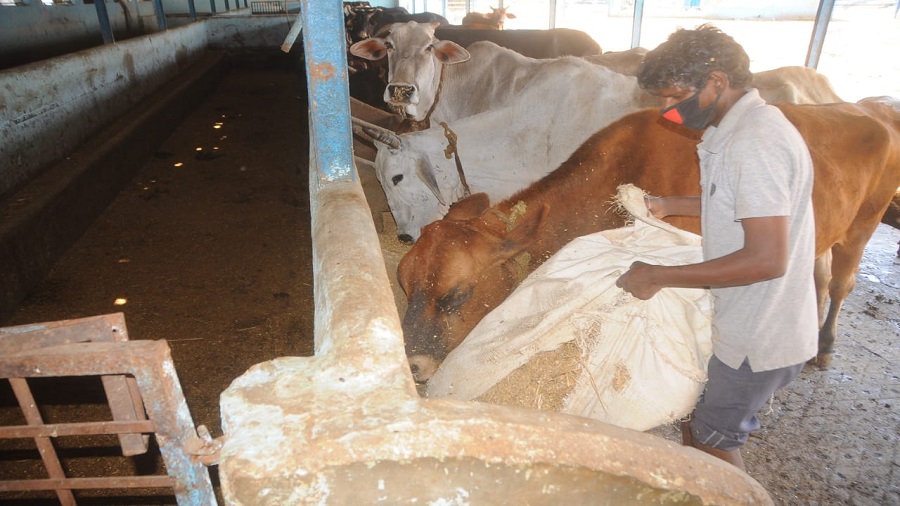A mysterious virus, which causes “lumpy skin disease” in bovine animals and can also be transmitted to humans, has been infecting cattle in Jharkhand, officials from the animal husbandry department said on Wednesday, raising concern over the spread of another virus without a vaccine.
A few cases of lumpy skin disease were found in Palamau where the virus infected domesticated cows and buffalos, said animal husbandry director Nancy Sahay. The animal husbandry directorate subsequently issued an alert to all districts and asked authorities there to spread awareness about this viral infection.
“All district officials have been asked to spread awareness among animal keepers about this disease and also ensure that it doesn’t lead to panic abandoning of animals,” said Sahay. “The only way to prevent the spread of this disease is to keep the infected animals in isolation, and not let other animals or humans come in direct contact with the infected bovine,” she added.
Once an animal is infected, it develops lumps on the skin and loses appetite. Most of the infected animals also suffer from high fever and weakness. Although chances of fatality are low, the virus can adversely affect the reproductive system of the infected animal, and lead to health hazards for animal keepers, officials said.
While the precautionary measures taken to prevent the spread of the lumpy skin disease virus (LSDV) were similar to the ones taken against Covid-19 virus, the former was not as lethal as Covid-19, officials said. This virus primarily infected animals and very few cases of humans getting infected were reported, officials said. The virus is mostly transmitted through insect vector, but transmission through direct contact has also been reported in the past.
Before entering Jharkhand, the virus seems to have infected several thousand cattle in Maharashtra, Andhra Pradesh and some other states. The mortality rate, however, was quite low among the animals that were infected, officials said.
The Director of Medha Dairy, Sudhir Kumar Singh, said the virus can infect an animal for two to five weeks. However, the virus can affect the milk productivity of an animal for several weeks even after recovery, he added.
In Jharkhand, the animal husbandry department has started testing samples of animals suspected to be infected by the virus, officials said. Besides, the department is also running extensive social media campaigns to spread awareness about the disease among the masses.











